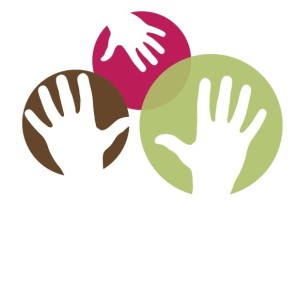
While we try to teach our children all about life,
Our children teach us what life is all about.
~Angela Schwindt
 This issue of the Buzz from the Hub brings you three disability-related resources–namely, information about the behavioral disorder called DMDD (which stands for “disruptive mood dysregulation disorder”); an article focused on how to build the conversational know-how of young people with disabilities that affect social skills; and a guide to toys for children with special needs. We hope this helps you respond to the needs and concerns of the families you serve.
This issue of the Buzz from the Hub brings you three disability-related resources–namely, information about the behavioral disorder called DMDD (which stands for “disruptive mood dysregulation disorder”); an article focused on how to build the conversational know-how of young people with disabilities that affect social skills; and a guide to toys for children with special needs. We hope this helps you respond to the needs and concerns of the families you serve.
For Parent Centers and other organizations concerned with the accessibility of the PDFs they create and share, we add a helpful resource on this oft-perplexing challenge.
Our best to you all,
The CPIR Team | Debra, Lisa, Jessica, Debi, and Myriam
___________________________
Disability Info to Share with Families
DMDD: Extreme Tantrums and Irritability
Occasional tantrums and irritability are normal parts of childhood, but some children have frequent, extreme tantrums (at an age when most kids have outgrown them) and are irritable most of the time. Could it be DMDD? This article from the Child Mind Institute describes what disruptive mood dysregulation disorder (DMDD) is, what causes the tantrums, how the disorder is diagnosed, and how it is treated.
4 Parts of a Conversation: How to Help Kids With Social Skills Issues Navigate
Also available in Spanish: 4 partes de una conversación: Cómo ayudar a los niños que tienen dificultades para socializar
For most people, having a conversation is relatively easy, even second nature. Not so for children and youth with social skills issues! Skills such as reading body language and knowing what to say (and when to say it) don’t come easily to them. Here’s a look at the four parts of a conversation, the skills involved, and how to help children navigate each one.
Selecting Toys for Young Children with Disabilities
Okay, this resource isn’t exactly focused on a specific disability, but we thought families and friends would find it timely, with the holidays and gift-giving just around the corner! From the Center on Technology and Disability.
Pesky PDFs No More!
 Inclusive PDFs by Design
Inclusive PDFs by Design
We can take pride in the creativity and visual appeal of the PDFs we produce, but also worry that they’re not accessible to readers with disabilities. Did you know that PDFs can be accessible without sacrificing design? View this September 2018 webinar to see how accessible PDF design is responsible, inclusive, and –yes– attractive. From AEM, the National Center on Accessible Educational Materials.
___________________________
The CPIR hopes that you’ve found useful and relevant resources listed in this month’s Buzz from the Hub. Please feel free to write to the editor, Lisa Küpper, at lkupper@fhi360.org to suggest the types of resources you’d like to see in the future. CPIR is listening! Your input is extremely valuable to helping us to craft newsletters that support your work with families.
Debra, Myriam, Jessica, Debi, and Lisa
The CPIR Team
____________________________________________________________
 This eNewsletter from the CPIR is copyright-free.
This eNewsletter from the CPIR is copyright-free.
We encourage you to share it with others.
Center for Parent Information and Resources
c/o SPAN, Inc.
35 Halsey St., Fourth Floor
Newark, NJ 07102
https://www.parentcenterhub.org/
Subscribe to the Buzz from the Hub.
See past issues of the Buzz.
____________________________________________________________
Publication of this eNewsletter is made possible through Cooperative Agreement H328R180005 between OSEP and the Statewide Parent Advocacy Network (SPAN). The contents do not necessarily reflect the views or policies of the Department of Education, nor does mention of trade names, commercial products, or organizations imply endorsement by the U.S. Government or by the Center for Parent Information and Resources.

